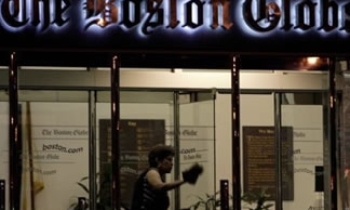Civil war erupted at America's most famous newspaper yesterday, with senior staff exchanging public recriminations over the actions of a controversial reporter nicknamed "Miss Run Amok".
The reader representative of The New York Times, a senior figure in the paper's hierarchy, roundly criticised both its editor and its publisher for their "deference" to the reporter, Judith Miller.
Ms Miller recently spent 85 days in jail for refusing to reveal sources in the affair of the leaked name of a CIA agent, Valerie Plame.
The 57-year-old reporter was then widely described as a journalistic heroine, but a growing army of critics says she was over-protective of sources, who were allegedly in the White House, to the detriment of her paper's interests.
There was already plenty of simmering ill-feeling towards her in the liberal establishment, of which The New York Times is a major pillar, because she allegedly enjoyed an overly close relationship with the White House. She also wrote stories containing inaccurate material about Iraq's weapons of mass destruction.
Senior staff have now been accused of failing to keep her on "a tight editorial leash".
The affair is proving a very public humiliation for a newspaper which often appears to regard itself as the world's best, and is still recovering from revelations two years ago that reporter Jayson Blair faked stories. That caused the then editor, Howell Raines, to resign.
Under the headline "The Miller Mess", the reader's editor of The New York Times, Byron Calame, wrote: "The apparent deference to Ms Miller by Arthur Sulzberger Jr, the publisher, and top editors of The [New York] Times, going back several years, needs to be addressed more openly."
Mr Calame also suggested that Ms Miller should not be allowed to resume her old job. "The problems facing her inside and outside the newsroom will make it difficult for her to return to the paper as a reporter," he wrote.
Meanwhile, the paper's editor, Bill Keller, sent an e-mail to staff acknowledging that he had been too passive in overseeing Ms Miller's reporting. He also said that she seemed to have misled her bosses about key facts.
That triggered an angry denial from Ms Miller, who said she did not mislead anyone.
A leading columnist at the paper, Maureen Dowd, then joined the fray by attacking both sides. But she reserved her strongest criticism for Ms Miller.
The columnist acknowledged that Ms Miller had spent time in jail rather than revealing her White House sources to investigators, but questioned her true motivation.
Ms Dowd wrote: "People wonder whether her stint in Alexandria jail was part of a career-rehabilitation project."
Ms Miller came to the attention of prosecutors as she researched the affair of Mrs Plame, an undercover CIA agent who was "outed" after her name was allegedly leaked to several reporters by senior White House staff, including President George W Bush's chief strategist, Karl Rove, and Vice-President Dick Cheney's chief of staff, "Scooter" Libby.
The officials were said to be furious at Mrs Plame's husband, a former ambassador, for making what they regarded as untruthful allegations against the White House over the use of intelligence in the run-up to war in Iraq.
That provoked a criminal investigation, with prosecutors demanding that several reporters reveal the details of their conversations with White House officials. A decision on charges - uncovering a CIA agent is a criminal offence - is expected this week.
Although she never wrote a story about Mrs Plame, Ms Miller was asked to testify on her links to the White House. She refused and was imprisoned. Eventually, her key source, Mr Libby, signed a waiver permitting her to speak.









